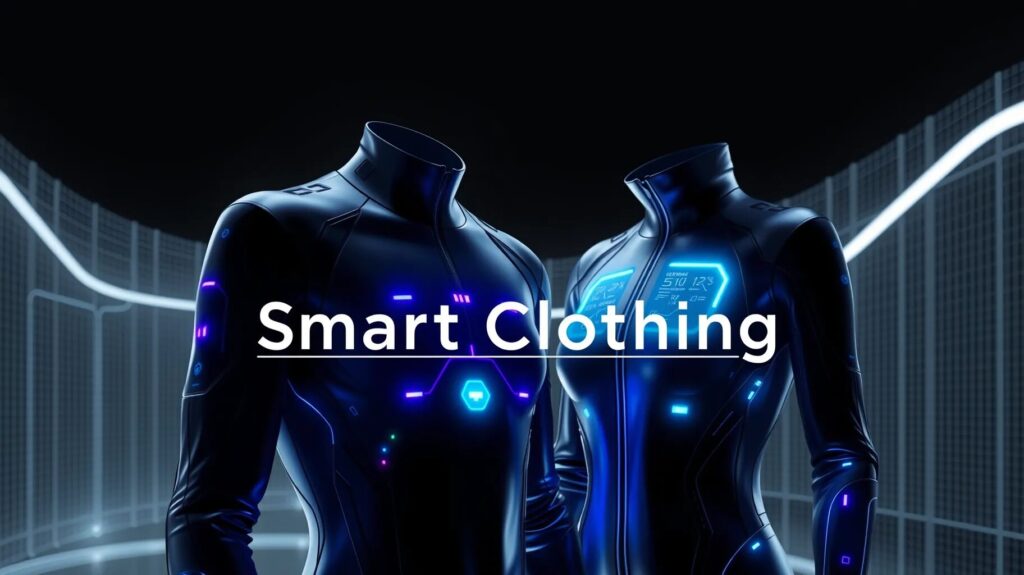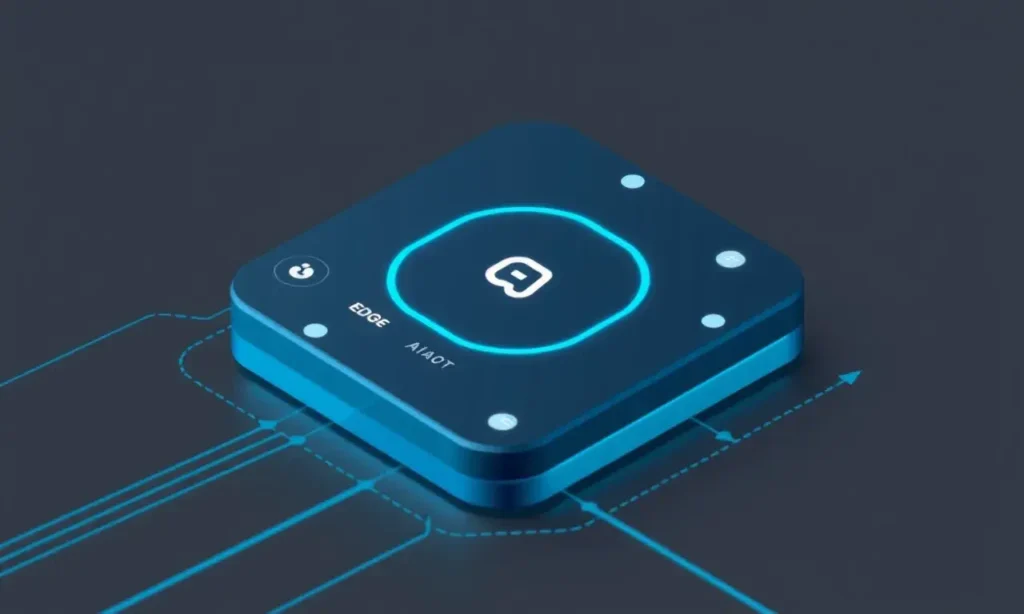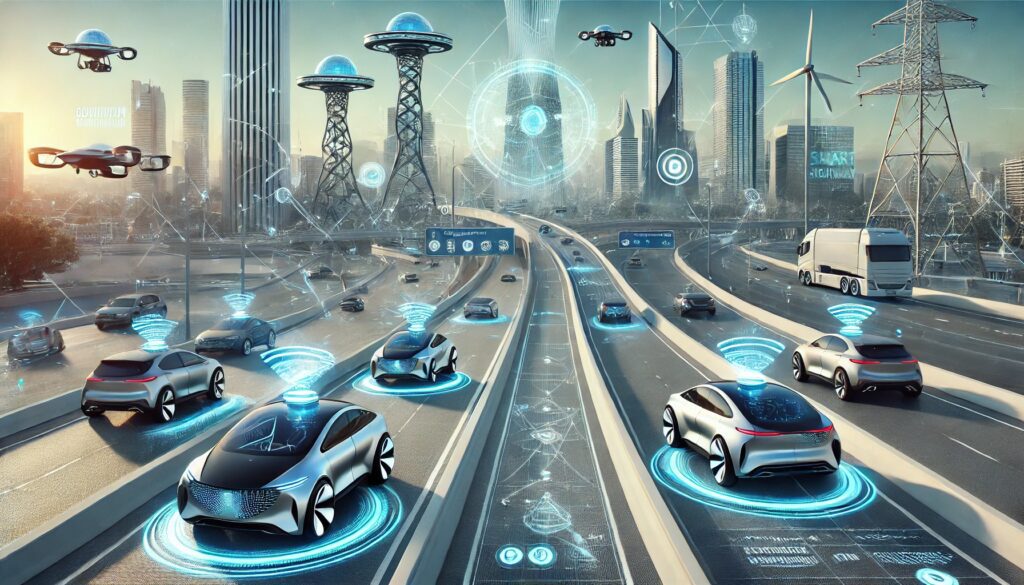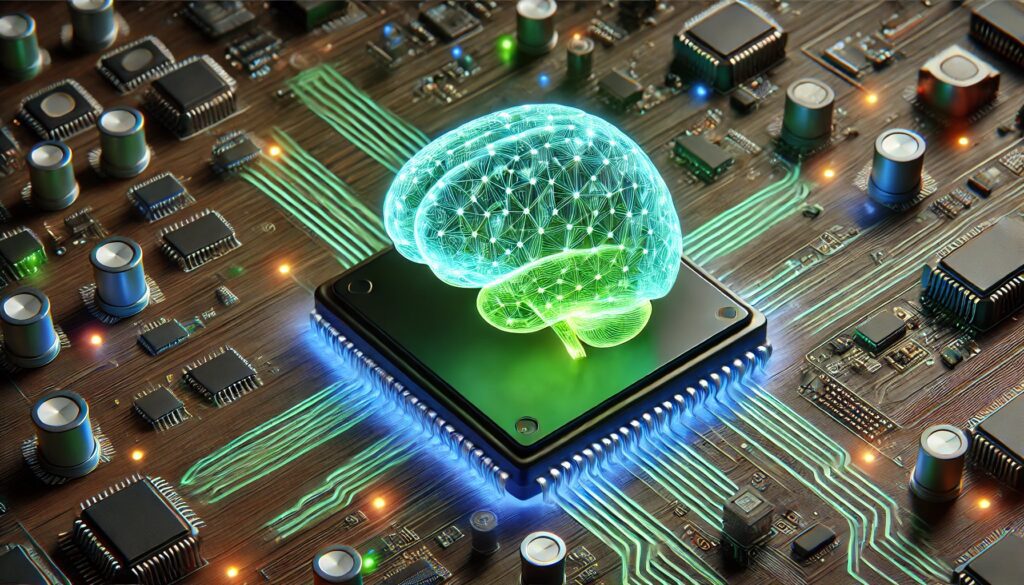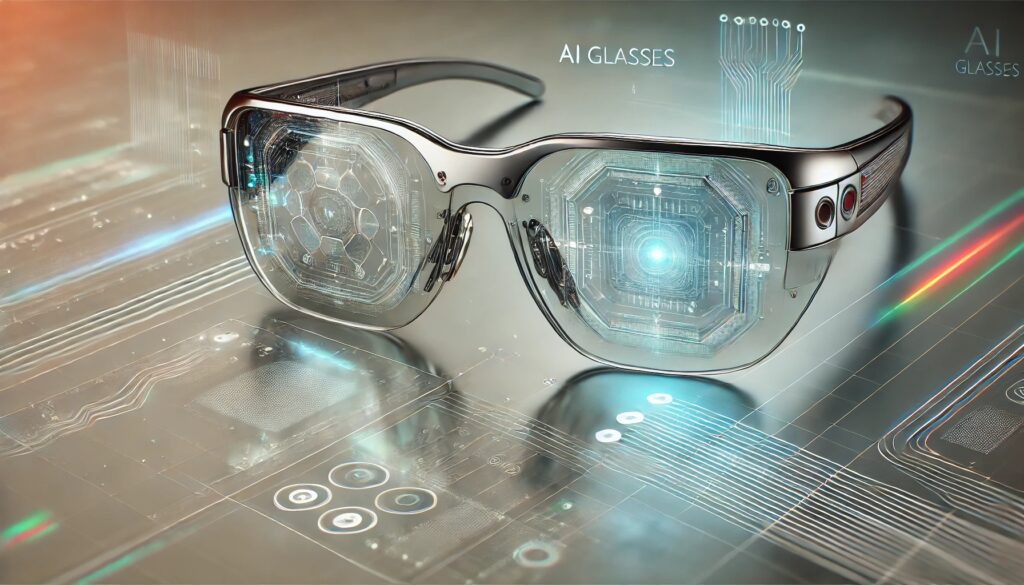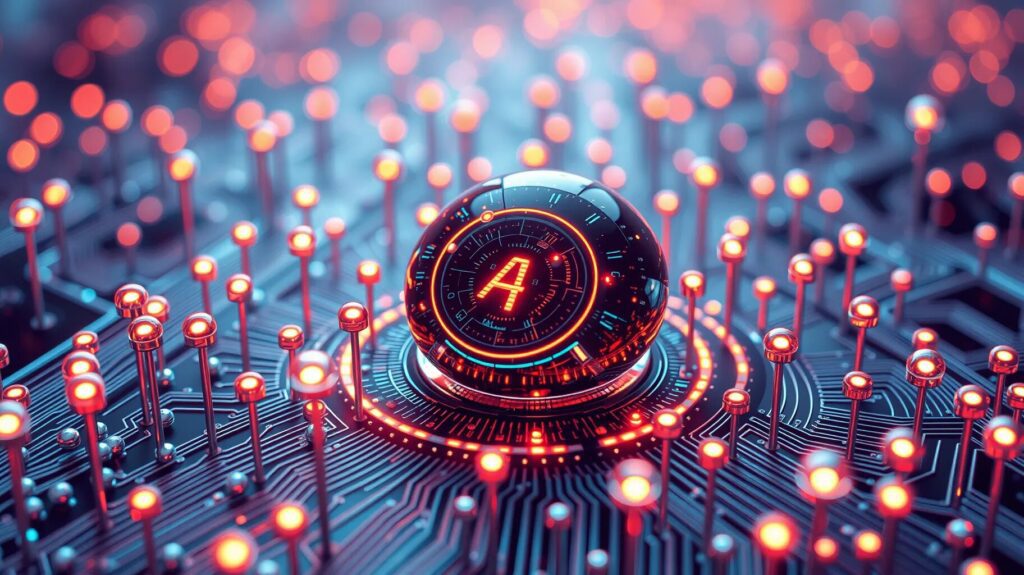
A New Era of Technology?
You don’t have to pull a phone out of your pocket to check the weather, send a message, or navigate your day. The future of hands-free computing seems closer than ever with the rise of AI pins. Tiny, wearable devices that might just make the smartphone obsolete.
These futuristic tools promise to be more than just a hands-free alternative; they could redefine how we interact with technology entirely.
Will AI pins replace smartphones, or will they simply evolve alongside them? Let’s dive into the potential of this exciting development and explore what it could mean for our daily lives.
The Rise of AI Pins: From Sci-Fi to Reality
Technology often mirrors ideas we’ve seen in science fiction, and AI pins are no exception. Think of those sleek, voice-activated devices from movies that allow seamless interaction with a virtual assistant at any time. It feels like we’re on the brink of turning that fantasy into reality.
Recent innovations in artificial intelligence and miniaturization technology have made AI pins possible. These pins aren’t just about doing what smartphones do—they’re about doing it faster, more naturally, and without the physical barrier of holding a device. The ultimate goal? To create a more intuitive, human experience.
What Can AI Pins Do That Smartphones Can’t?
AI pins could potentially change how we experience the world. Picture this: you’re walking down the street, and your AI pin quietly informs you of a traffic delay ahead or suggests a nearby coffee shop based on your preferences. It’s not just about accessing information anymore; it’s about making life smoother.
While smartphones require physical interaction, AI pins would work through voice commands, gesture controls, and even eye tracking. You’d no longer need to swipe or type—just speak, glance, or move, and the device responds. It’s like having a personal assistant always within reach, but never intrusive.
Enhanced Privacy or a New Privacy Risk?
One of the major talking points about AI pins is the privacy factor. While some argue that these pins offer a more discreet way to manage notifications and communications—without the need to stare at a glowing screen in public—others worry about data collection.
Will these devices record every movement, every conversation, and every preference? If smartphones already raise privacy concerns, AI pins might take those fears to another level. Companies developing these devices will need to tread carefully, ensuring users’ trust with advanced security measures and transparent data practices.
Will AI Pins Be the End of the Smartphone Era?
It’s tempting to imagine AI pins entirely replacing smartphones, but that reality may still be a few years off. Smartphones have become deeply ingrained in our culture and routines. They are versatile, offering everything from apps to cameras, from social media to gaming—all within one device. AI pins, as powerful as they may become, will likely complement smartphones, at least in the near future, rather than replace them outright.
However, as voice recognition improves and AI algorithms get smarter, the gap between the two will continue to shrink. The more advanced these pins become, the less we may rely on our traditional handheld devices.
The Convenience Factor: Always on, Always Ready
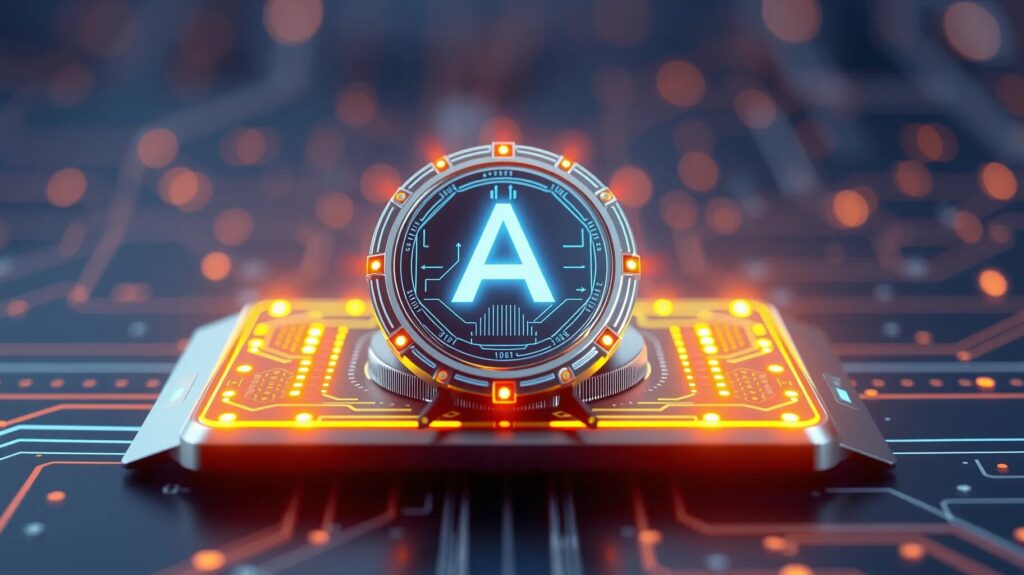
One of the biggest selling points for AI pins is their convenience. Because these devices are always on and always listening, there’s no need to fumble through your bag for your phone. They’re clipped to your clothing or worn as an accessory, making them immediately accessible. Whether you’re jogging, in a meeting, or just lounging at home, you can control your digital world without lifting a finger.
Moreover, with advancements in natural language processing (NLP), these pins can respond with incredible accuracy and context, understanding not just what you say, but what you mean.
How AI Pins Could Revolutionize Communication
Communication is at the heart of our digital lives, and AI pins could redefine how we connect with each other. Instead of pulling out a phone to call or text, users could simply speak naturally to the pin, sending messages in real-time without the need for typing or screen time. Imagine saying, “Text Sarah I’ll be late for dinner” while keeping your hands free for driving or other tasks. This hands-free experience could streamline everyday interactions and make multitasking easier than ever.
The integration of real-time translation could also become a game-changer. With AI pins, language barriers might become a thing of the past. You could speak in your native language and have the AI pin instantly translate and deliver the message to someone across the globe in their preferred language. This could completely transform business meetings, travel, and global friendships.
Health and Fitness Tracking at a Whole New Level
While smartphones already offer health-tracking apps, AI pins could take this a step further. Because they are wearable and always on, AI pins could continuously monitor heart rate, breathing patterns, and even stress levels. They might remind you to take a break, get up and stretch, or drink water based on real-time data. Additionally, AI pins could provide more precise fitness tracking by using machine learning to learn your habits and goals over time.
The future might also bring mental health support through these devices. Imagine an AI pin detecting signs of stress or anxiety based on your voice patterns or body language and offering personalized guidance, such as breathing exercises or gentle reminders to slow down. This kind of proactive, empathetic AI could make a huge difference in how we manage our well-being daily.
Personal Assistant Features Beyond What We Know
While voice assistants like Siri and Alexa have become common, they still require specific phrasing or commands to get things done. AI pins, however, could offer a more conversational and intuitive experience. You might not need to say, “Hey AI pin, schedule a meeting for 3 PM tomorrow.” Instead, it could understand a more casual, “Let’s book that meeting for tomorrow afternoon,” and automatically find the best time slot based on your schedule.
As these devices become smarter, they might anticipate your needs before you even ask. For example, if you have a flight the next morning, your AI pin could remind you about weather updates, traffic conditions, or even suggest when you should leave for the airport. It’s not just about responding to commands—it’s about becoming an integral part of your routine, thinking ahead for you.
The Role of AI Pins in Smart Home Integration
The concept of a smart home could also evolve with the help of AI pins. No longer would you need a smartphone or voice assistant to control your lights, thermostat, or security system. Instead, your AI pin could connect seamlessly with all your smart devices, allowing you to adjust settings with a quick voice command or gesture.
For instance, as you walk into your house, the AI pin could detect your location and automatically turn on the lights or adjust the temperature to your preference. Want to start a playlist or dim the lights for a movie night? A simple spoken request could make it happen. The potential for home automation through AI pins could simplify and personalize daily life in ways we haven’t yet experienced.
AI Pins and Augmented Reality: A Visual Aid Without the Glasses
One fascinating potential for AI pins is their integration with augmented reality (AR). Currently, most AR experiences require special glasses or a smartphone screen to display visuals. AI pins, however, might offer a different approach. Using advanced projection technology, they could overlay information directly into your environment without the need for wearable glasses.
Imagine walking through a city, and your AI pin highlights key landmarks, restaurant reviews, or even directions projected subtly in front of you. Or, in a work setting, it could project real-time data visualizations onto your desk during a meeting. This heads-up display experience would blend digital information with the real world in an unobtrusive, seamless way.
AI Pins as Tools for Accessibility
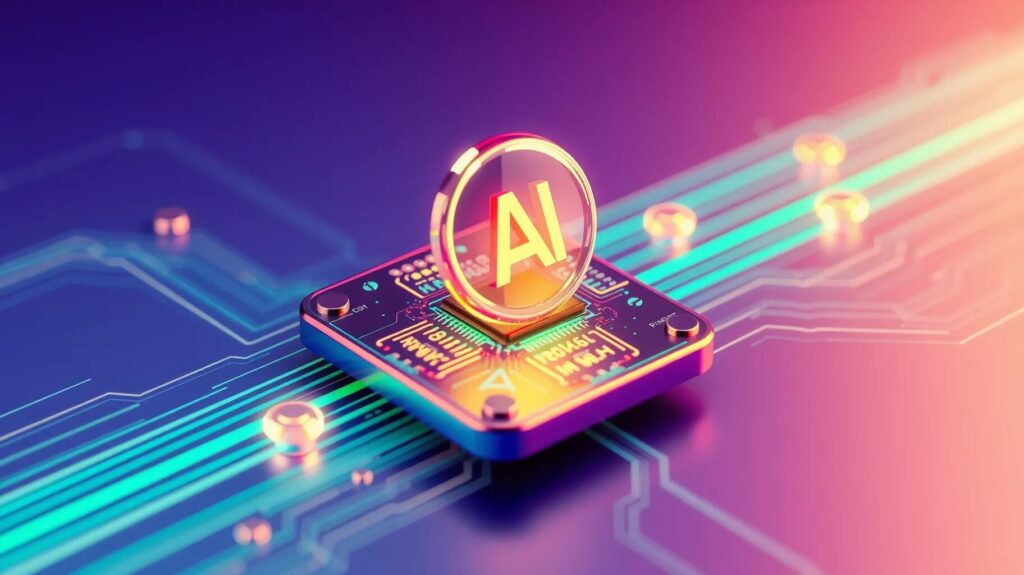
One of the most exciting possibilities for AI pins is their potential to improve accessibility for people with disabilities. These devices could become indispensable tools for those with vision impairments, mobility challenges, or hearing loss. Imagine an AI pin providing audio descriptions of the environment for a visually impaired person or reading aloud text from signs, menus, or documents they encounter throughout the day.
For those with hearing impairments, AI pins might use real-time transcription to convert spoken words into text, allowing for smoother conversations. Additionally, these pins could help individuals with mobility limitations by allowing hands-free control of their environment—adjusting the lighting, making phone calls, or even sending messages, all with simple voice commands.
The adaptability of AI pins to individual needs makes them a transformative technology for improving quality of life and fostering greater independence.
The Cost Factor: Will AI Pins Be Affordable?
As with any cutting-edge technology, the question of cost arises. Will AI pins be accessible to the general public, or will they remain a luxury item for early adopters? The first wave of these devices will likely come with a premium price tag, similar to the early days of smartphones or smartwatches. However, as competition increases and production scales up, we can expect prices to become more reasonable over time.
Another key factor will be whether companies offer subscription models, where the AI pin itself is relatively affordable, but users pay for ongoing services—like cloud storage, premium AI features, or additional apps. This could make the technology more accessible but also lock users into long-term payments, similar to how smartphone plans work today.
The Environmental Impact of AI Pins
As we welcome new tech like AI pins, it’s important to consider their environmental impact. Will these devices contribute to e-waste? Could they be designed to be sustainable? If they are constantly connected, what will be the energy cost?
Manufacturers may need to focus on making AI pins energy-efficient, with long-lasting batteries that don’t require frequent charging. The materials used will also play a role. Eco-friendly materials and recyclable components could set apart companies committed to reducing the tech industry’s environmental footprint.
Moreover, because AI pins are smaller and potentially replace a wide array of gadgets, they could ultimately reduce the number of devices people use and discard. If designed thoughtfully, these tiny, powerful gadgets could have a lower environmental impact compared to smartphones or tablets.
AI Pins and Social Interaction: More Connected or More Isolated?
One intriguing question is how AI pins will impact social interaction. Smartphones have already changed the way we engage with one another, often pulling our attention away from the present moment and into the digital world. AI pins, by contrast, could offer a more seamless connection to technology, reducing the need to look down at a screen every few minutes.
That said, there’s a possibility that AI pins could also become another barrier to face-to-face interaction. If people become too reliant on their AI pins for quick answers, notifications, and reminders, they may engage less with the world around them. Balancing the convenience of this new tech with the need for genuine human connection will be a crucial challenge.
Ethical Concerns: Who Controls the AI?
Another aspect we can’t ignore is the ethical implications of AI pins. Who controls the AI that powers these devices, and how will they handle the vast amounts of data collected from users? Since AI pins will likely rely heavily on cloud computing and constant connectivity, there are valid concerns about privacy, data ownership, and surveillance.
Will users have full control over what data their AI pin collects? Will there be transparency about how that data is used and shared with third parties? As we move toward an increasingly AI-driven world, these are critical questions that need to be addressed by both developers and regulators. The technology might be brilliant, but if users feel their privacy is at risk, adoption could be slow.
How AI Pins Could Change the Workplace
In the future, AI pins might transform not only how we communicate but also how we work. Imagine walking into a meeting, and instead of opening a laptop or pulling out a phone, your AI pin projects relevant documents, data summaries, or a real-time agenda right in front of you. You could give presentations, manage tasks, and even send follow-up emails, all through simple voice commands or gestures.
For remote work, these devices could facilitate better virtual interactions. By providing real-time transcription of meetings, note-taking, and even task management, AI pins could streamline workflows. Teams could collaborate more efficiently, with the AI pin acting as an assistant to keep everyone on track—without interrupting the flow of conversation. In industries like healthcare, engineering, or logistics, where hands-free interaction is crucial, AI pins could be a game-changer in terms of productivity.
Potential Security Risks: Could AI Pins Be Hacked?
While AI pins offer incredible potential, they also raise concerns about security. As with any connected device, the risk of hacking or data breaches will be an ongoing issue. Because AI pins will likely store sensitive information—such as personal preferences, communication logs, and even biometric data—they could become targets for cybercriminals.
Developers will need to prioritize robust encryption and authentication methods to prevent unauthorized access. Voice recognition, facial recognition, or even biometric sensors could be integrated into AI pins to ensure that only the rightful owner can activate and control the device. But as these technologies become more sophisticated, so do the methods hackers use to bypass them. Keeping AI pins secure will require constant innovation and vigilance.
AI Pins in Education: A Personalized Learning Experience
Another area where AI pins could have a major impact is education. Imagine students wearing AI pins that help them with real-time learning—whether by offering extra explanations during a lesson, translating complex subjects into simpler language, or giving personalized feedback on assignments. These devices could adapt to each student’s learning style, providing support exactly when and how it’s needed.
For teachers, AI pins could streamline tasks like grading or classroom management, allowing them to focus more on student interaction and less on administrative duties. Furthermore, these devices could support students with learning disabilities, offering tailored guidance, reminders, or alternative teaching methods to ensure no one falls behind.
AI Pins and the Evolution of Entertainment
We’ve already seen how smartphones have transformed entertainment, but AI pins could take things to the next level. Rather than watching content on a small screen, AI pins could project immersive augmented reality (AR) experiences into the environment around you. Think about exploring a virtual world while still connected to your physical space—without the need for bulky VR headsets.
Streaming music, podcasts, or audiobooks could also be enhanced through contextual recommendations. Your AI pin might suggest the perfect playlist for a morning workout, or a podcast related to the news article you just read. These devices could create a more personalized media experience, tailored to your mood, environment, and interests.
The Role of AI Pins in Crisis Situations
AI pins could potentially play a vital role in emergency situations or crisis management. Imagine having an AI pin that can instantly detect danger—such as smoke, fire, or a medical emergency—and automatically call for help or provide life-saving instructions. In the case of natural disasters or accidents, AI pins could assist with real-time updates, directing people to safety or alerting authorities to their location.
For individuals with chronic illnesses or medical conditions, AI pins could monitor vital signs and alert emergency contacts or healthcare professionals at the first sign of trouble. This kind of instant response could be critical in saving lives and minimizing harm in dangerous situations.
Final Thoughts on the Future of AI Pins
The rise of AI pins could mark a significant shift in how we interact with technology. From streamlining communication and work tasks to enhancing our entertainment and daily routines, these small, wearable devices have the potential to reshape our lives in ways we’re just beginning to imagine.
As we move forward, the biggest challenge will be balancing convenience with privacy and security. If developers can successfully address these concerns, AI pins could become the next major tech innovation—an indispensable tool that helps us stay connected, productive, and engaged with the world around us.
Though smartphones might not disappear entirely, AI pins could certainly reduce our dependence on them, offering a hands-free, voice-activated future where technology is more seamlessly integrated into our daily lives.
Resources
- Wired – The Rise of Wearable AI Technology
Wired provides insights into how wearable AI devices, like AI pins, are evolving and where the technology might be heading in the near future. - The Verge – The Future of Wearables and Smart Assistants
The Verge frequently covers the latest trends in wearable tech and AI, exploring how smart assistants and devices like AI pins could impact daily life. - MIT Technology Review – Wearable AI and Its Implications
MIT Technology Review offers in-depth analysis on artificial intelligence and the potential future of wearable technology, including ethical considerations. - Gartner – AI Wearables and the Post-Smartphone Era
Gartner research delves into the future of AI wearables, market forecasts, and the broader impact on industries like healthcare and communication. - TechCrunch – AI Devices and the Future of Connectivity
TechCrunch explores cutting-edge advancements in wearable AI, with frequent updates on the latest gadgets and potential applications for AI pins. - Forbes – Artificial Intelligence and Wearables: What to Expect
Forbes provides a business and technology-focused perspective on the evolution of AI, with discussions on how AI pins might affect industries and consumer behavior. - IEEE Spectrum – AI Wearable Technology: Trends and Security
IEEE Spectrum covers the technological breakthroughs and challenges related to wearable AI devices, with a focus on security, privacy, and functionality.

